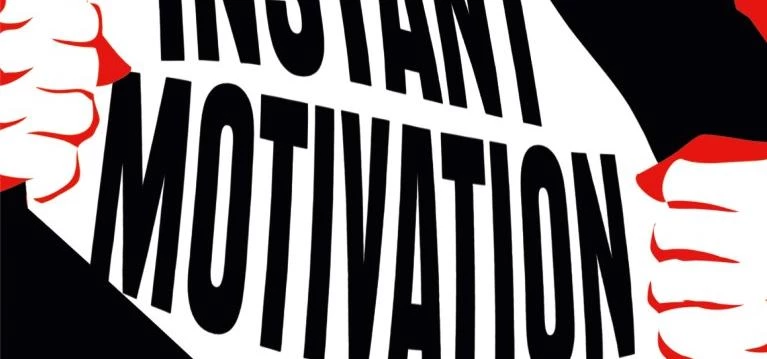
Partner Article
Why ignoring your gut instinct goes belly up
The old adage that you should ‘trust your gut’ in business really does have some weight – you’ll be right 70% per cent of the time, new research reveals.
A study by business psychology firm Star Consultancy has found that ignoring your instincts will be the wrong decision in three-out-of four cases.
In a nationwide survey of managers, directors and employees, the overwhelming majority of hunches that were ‘overruled with intellect’ were later proven to be correct.
A fifth of those who listened to their heads rather than their hearts, said doing so had a damaging effect on their work or business.
The majority of those questioned blamed self-confidence or a lack of power as the main reasons for failing to follow their instincts.
Chantal Burns, one of the UK’s leading experts in state of mind and performance, who conducted the research, said the findings highlight how professionals should be “more confident” in following their instincts.
The findings, published today, follow an 18-month comprehensive study into decision-making and workplace performance. It is the first piece of research to delve into the psyche of employees from an independent perspective.
“This unique research adds to a growing body of evidence showing that most of our daily decisions are not rational, logical thought processes but are inner directed via instinct, intuition and gut feeling.
“We often know what the right answer is, or we at least have a strong sense of the right direction and yet many of us ignore our hunches, which in many cases turn out to be valid.
“These findings strongly suggest that we should all learn to be more confident in trusting our wisdom and better judgement, which in turn will help us to make better choices and decisions at work and in life.”
The Star Consultancy questioned a cross-section of 600 male and female employees from a variety of organisations across the UK.
Respondents ranged in age between 18 and 55 and were comprised of non-managers (36 per cent), line managers (31 per cent), managers (14 per cent), senior managers (10 per cent) and directors (nine per cent).
Some 82 per cent of those questioned have made decisions based purely on instinct, with only three per cent relying on just “hard facts and data”.
But the poll also found that 77 per cent of respondents have ignored their instincts or gut feelings which, 70% of the time, were proven to be correct.
In nearly a quarter of cases (22 per cent), respondents said the situation “turned out successfully despite my instincts”.
Yet 21 per cent admitted that ignoring their instincts had had a detrimental effect on their work or on a project.
Of those who have ignored their gut feelings, 22 per cent said doing so was “difficult” and was based on a lack of confidence (42 per cent), a lack of power to make the decision (45 per cent) or because they were “overpowered” by colleagues (34 per cent).
Conversely, the survey also found that making decisions through haste or without the necessary information could have a negative impact with 65 per cent admitting that they have made decisions at work which they have later regretted.
Interestingly, some 69 per cent said that they put off making decisions if they lack clarity of thought and think their head is ‘not in the right place’.
Burns, who is considered to be one of the UK’s leading authorities on workplace performance, will publish the findings of this groundbreaking study in her new book ‘Instant Motivation’, which hits the shelves this month through Pearson.
She said: “My research reveals how the biggest barriers to better decision-making are a lack of clarity, being overwhelmed or feeling insecure and this causes us to make rushed decisions or to over-think them.”
“The good news is that these barriers are all state-of-mind driven and can be addressed through educating management and staff in how to bring more mental clarity to the job at hand.”
“Rather than shooting down or belittling hunches, organisational leaders need to better recognise the value of employee intuition, and encourage staff to trust and use their own instincts and judgement more often.”
“As the research shows, three out of four times your hunch will pay off, and that will save time, resources and ultimately, benefit the bottom line.”
ENDS
This was posted in Bdaily's Members' News section by Anthony Harvison .
Enjoy the read? Get Bdaily delivered.
Sign up to receive our popular morning National email for free.








 £100,000 milestone drives forward STEM work
£100,000 milestone drives forward STEM work
 Restoring confidence for the economic road ahead
Restoring confidence for the economic road ahead
 Ready to scale? Buy-and-build offers opportunity
Ready to scale? Buy-and-build offers opportunity
 When will our regional economy grow?
When will our regional economy grow?
 Creating a thriving North East construction sector
Creating a thriving North East construction sector
 Why investors are still backing the North East
Why investors are still backing the North East
 Time to stop risking Britain’s family businesses
Time to stop risking Britain’s family businesses
 A year of growth, collaboration and impact
A year of growth, collaboration and impact
 2000 reasons for North East business positivity
2000 reasons for North East business positivity
 How to make your growth strategy deliver in 2026
How to make your growth strategy deliver in 2026
 Powering a new wave of regional screen indies
Powering a new wave of regional screen indies
 A new year and a new outlook for property scene
A new year and a new outlook for property scene